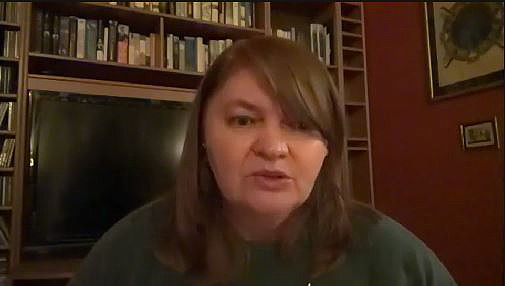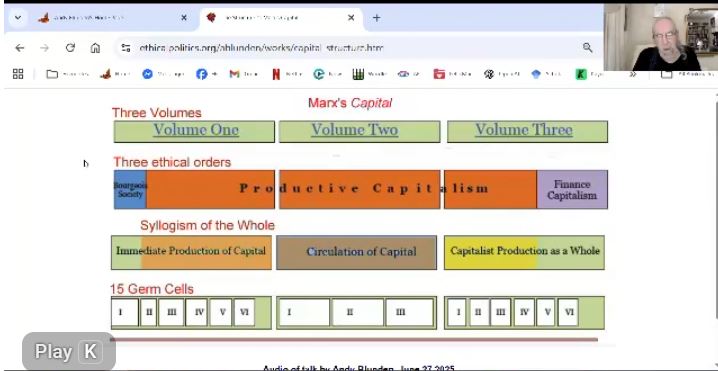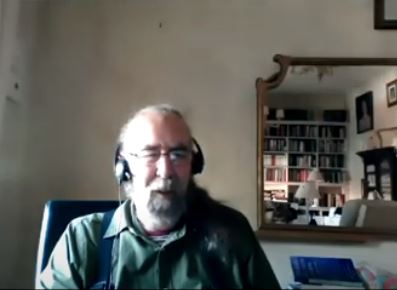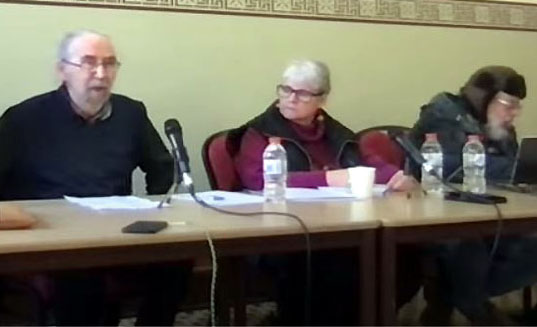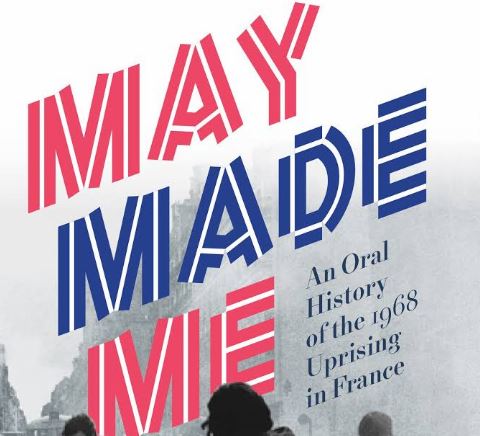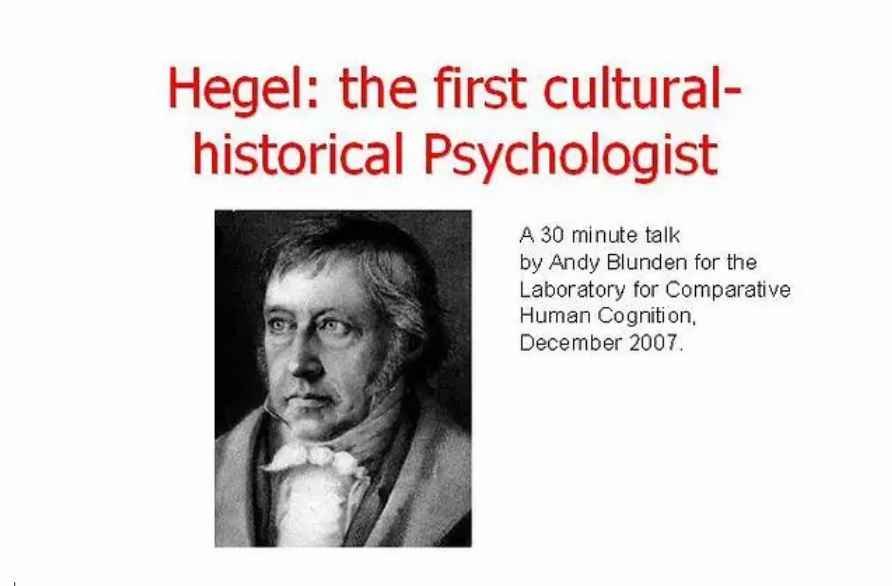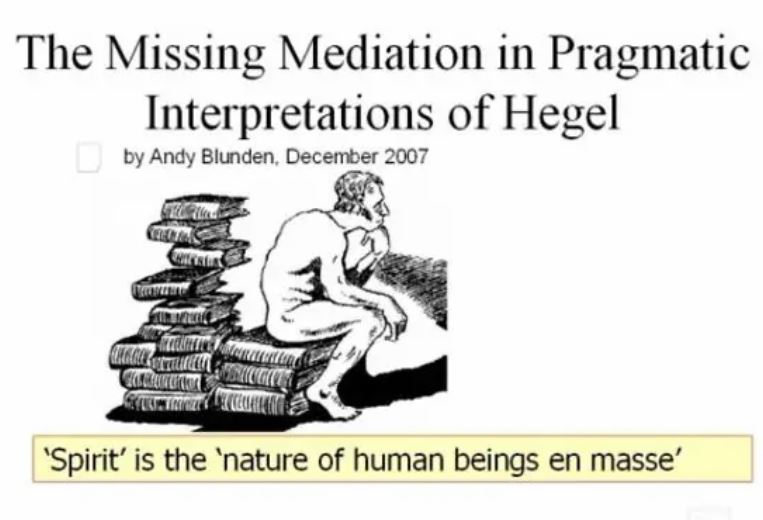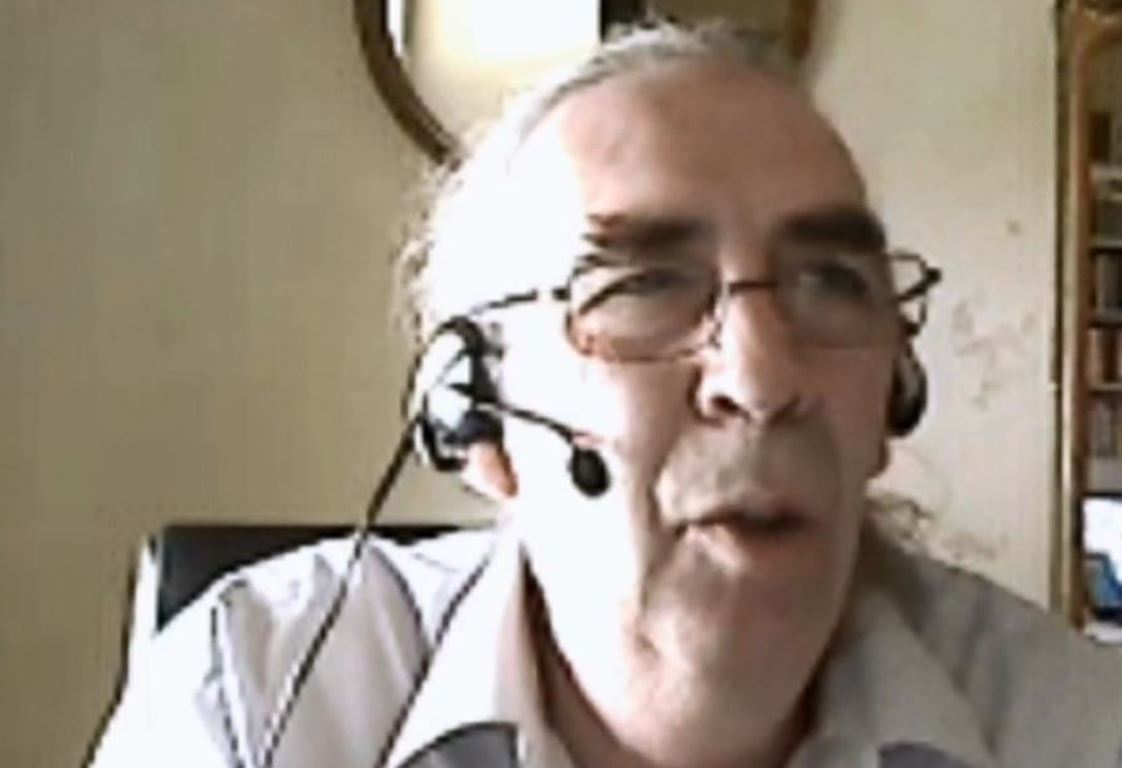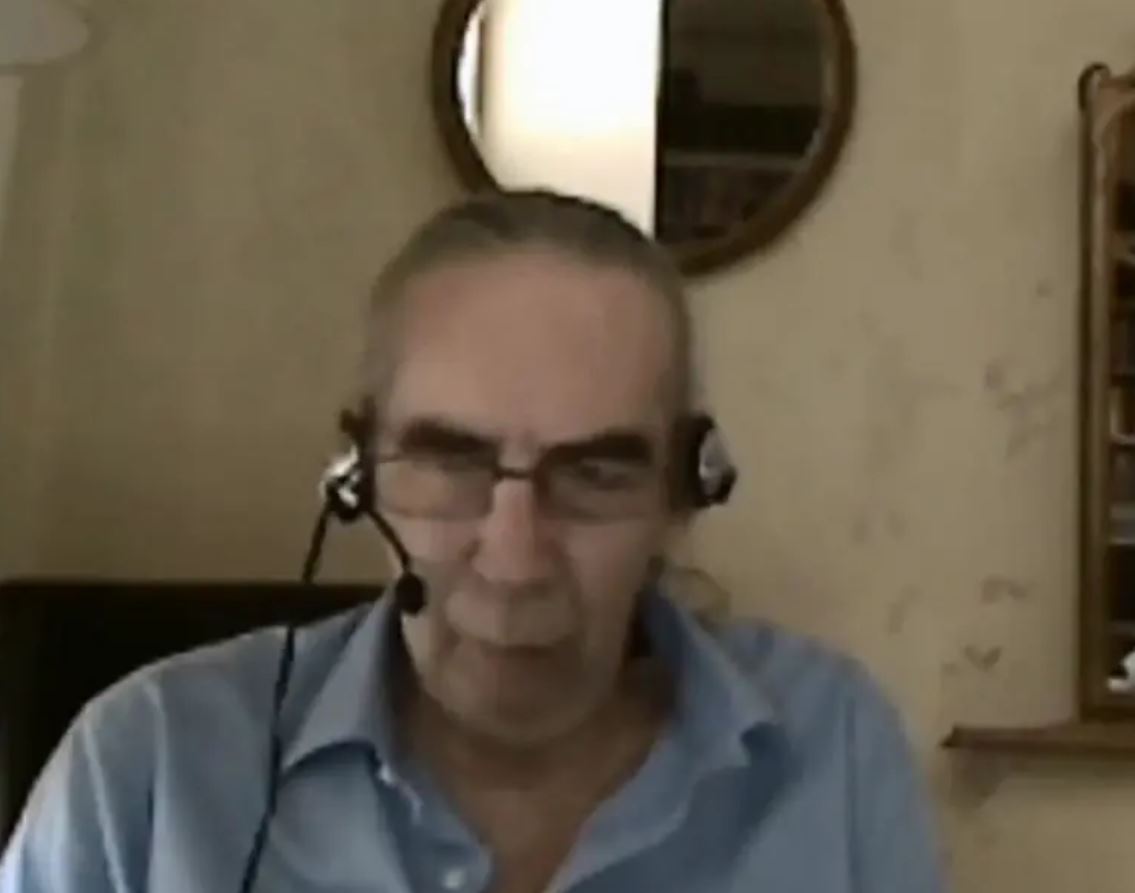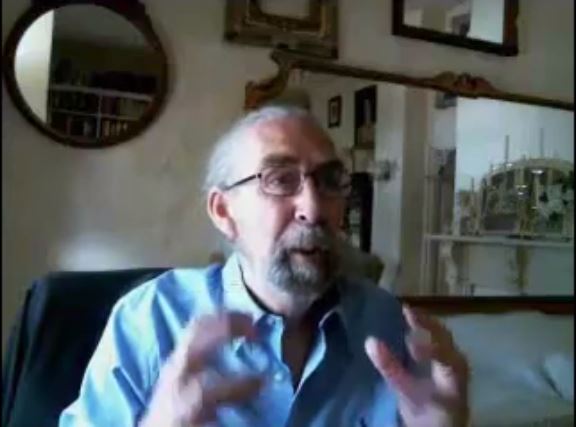All videos listed on this page are authored by Andy Blunden and may be freely reproduced provided only that the author is attributed, as per the Creative Commons licence.
Each lecture is about 25 minutes and the rest of the video is question and answer. The texts are available here. |
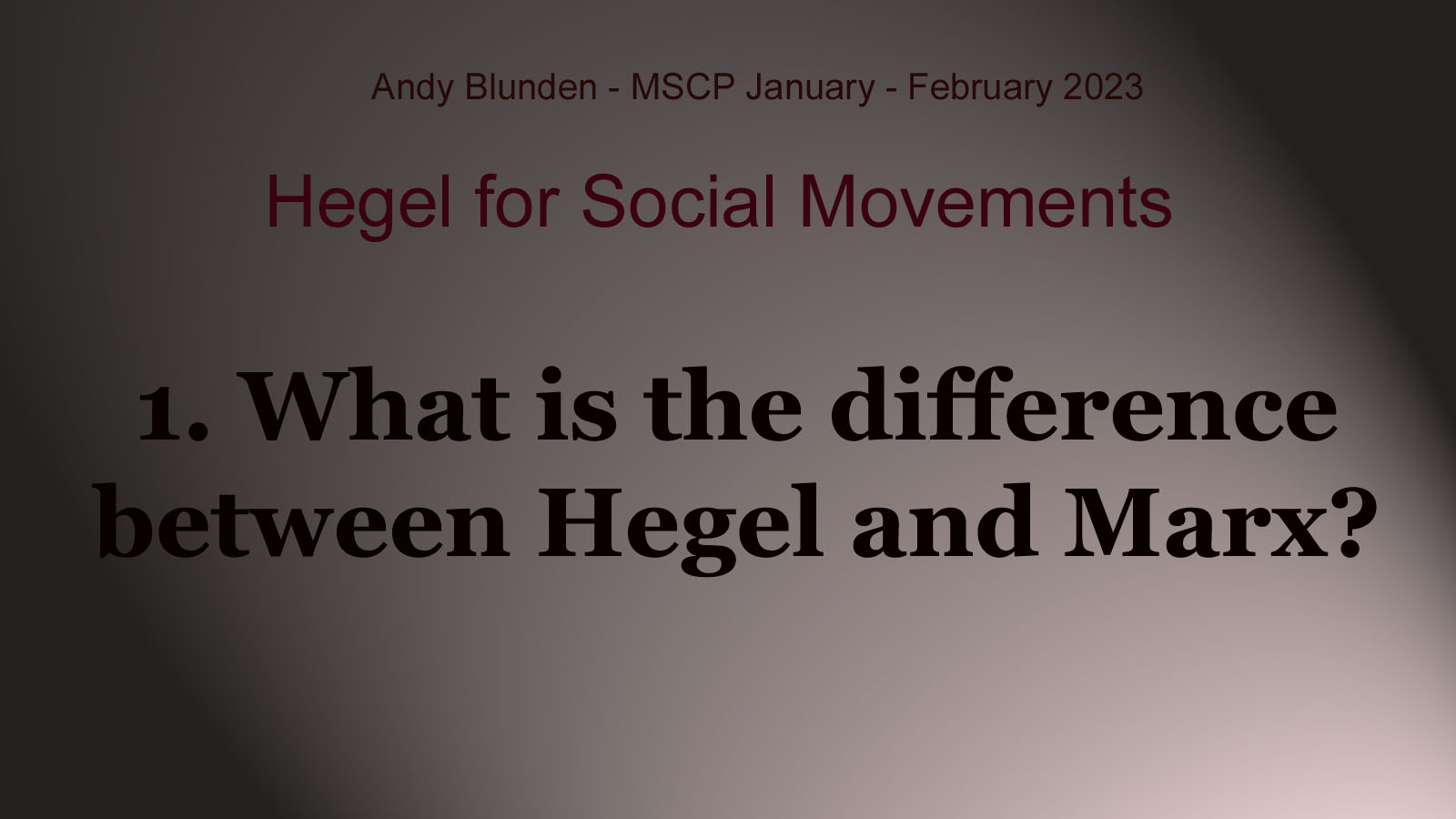 | 1. What is the difference between Hegel and Marx?
Lecture 1, discussing the differences between Hegel and Marx and the cultural and historical conditions underlying these differences. |
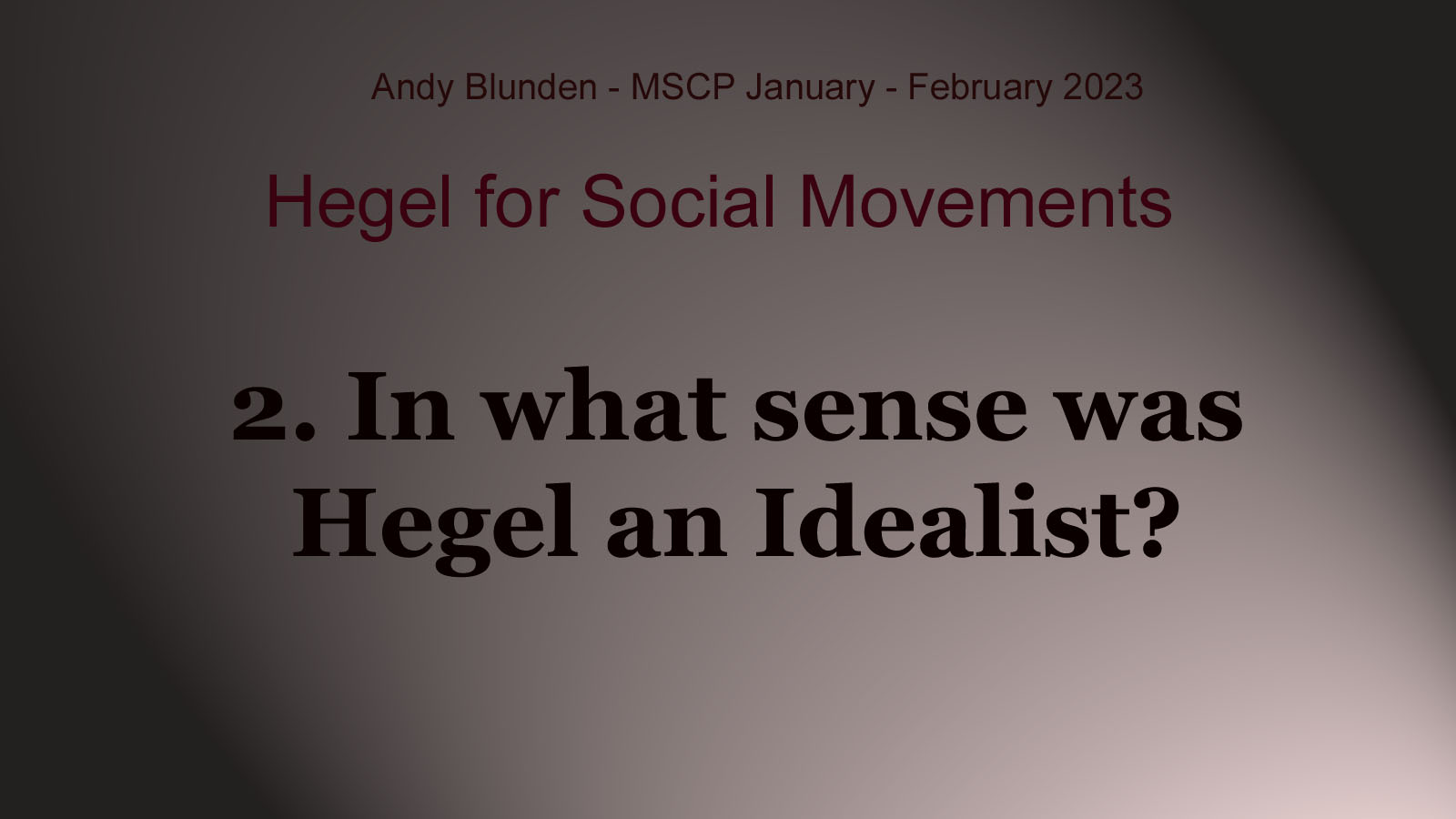 | 2. In what sense was Hegel an Idealist?
Lecture 2, examing the meaning of the charge that Hegel was an idealist along six different axes. |
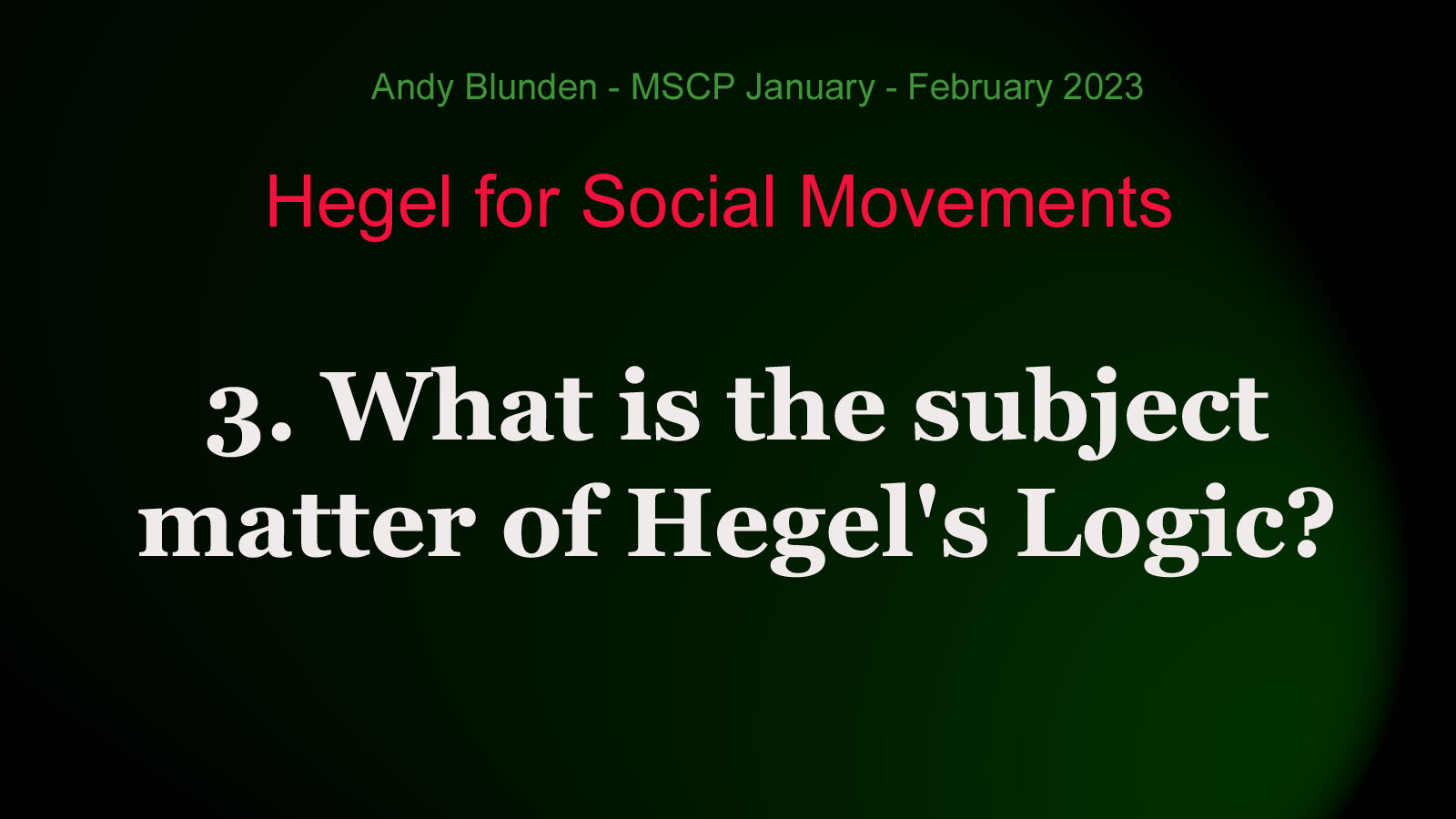 | 3. What is the subject matter of Hegel's Logic?
Lecture 3, examining the question of what Hegel's Logic is the logic of. |
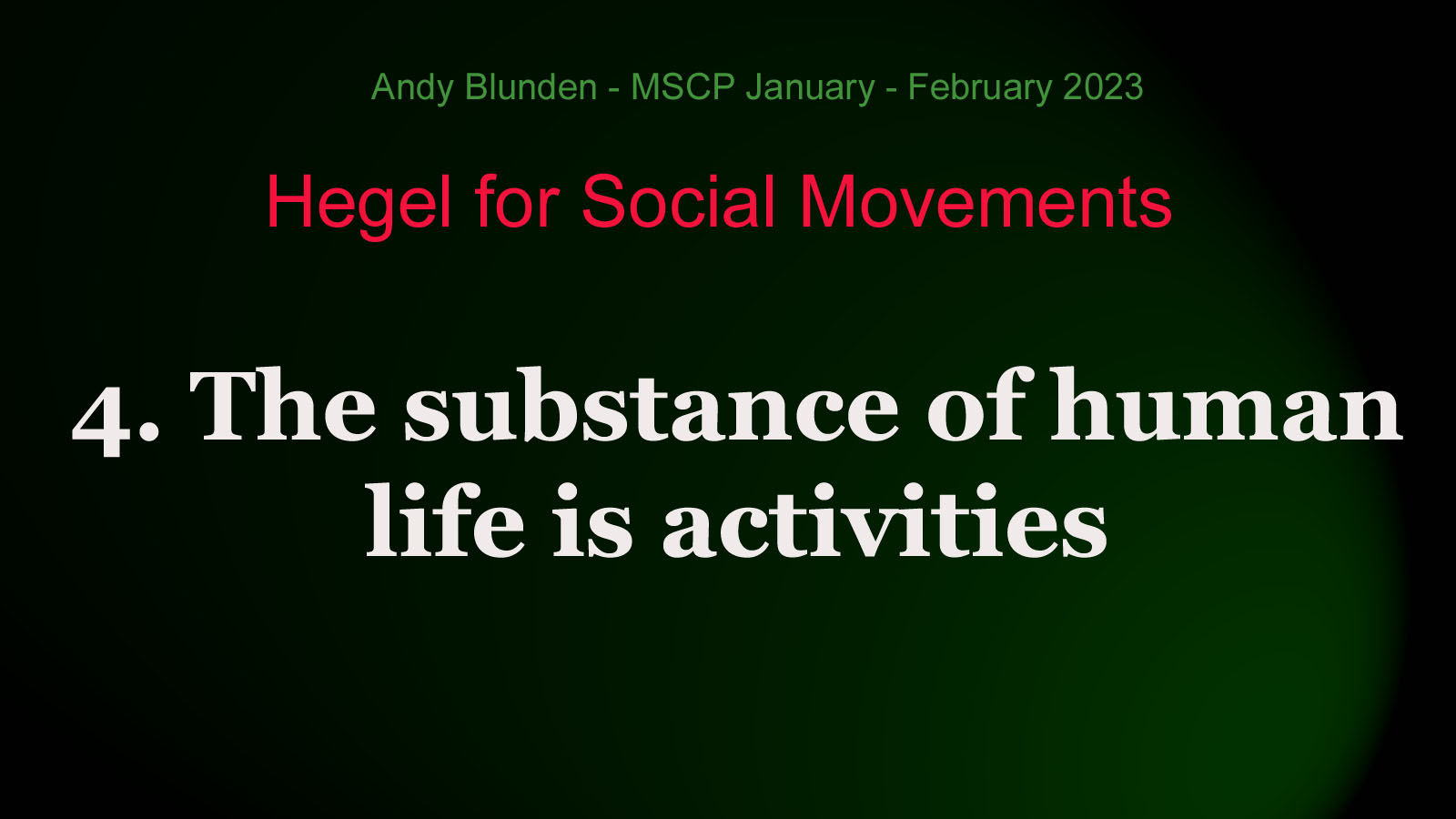 | 4. The substance of human life is activities
Lecture 4, goes on from the insight that Hegel's Logic is the logic of activity, to show that the substance of human life is activities. |
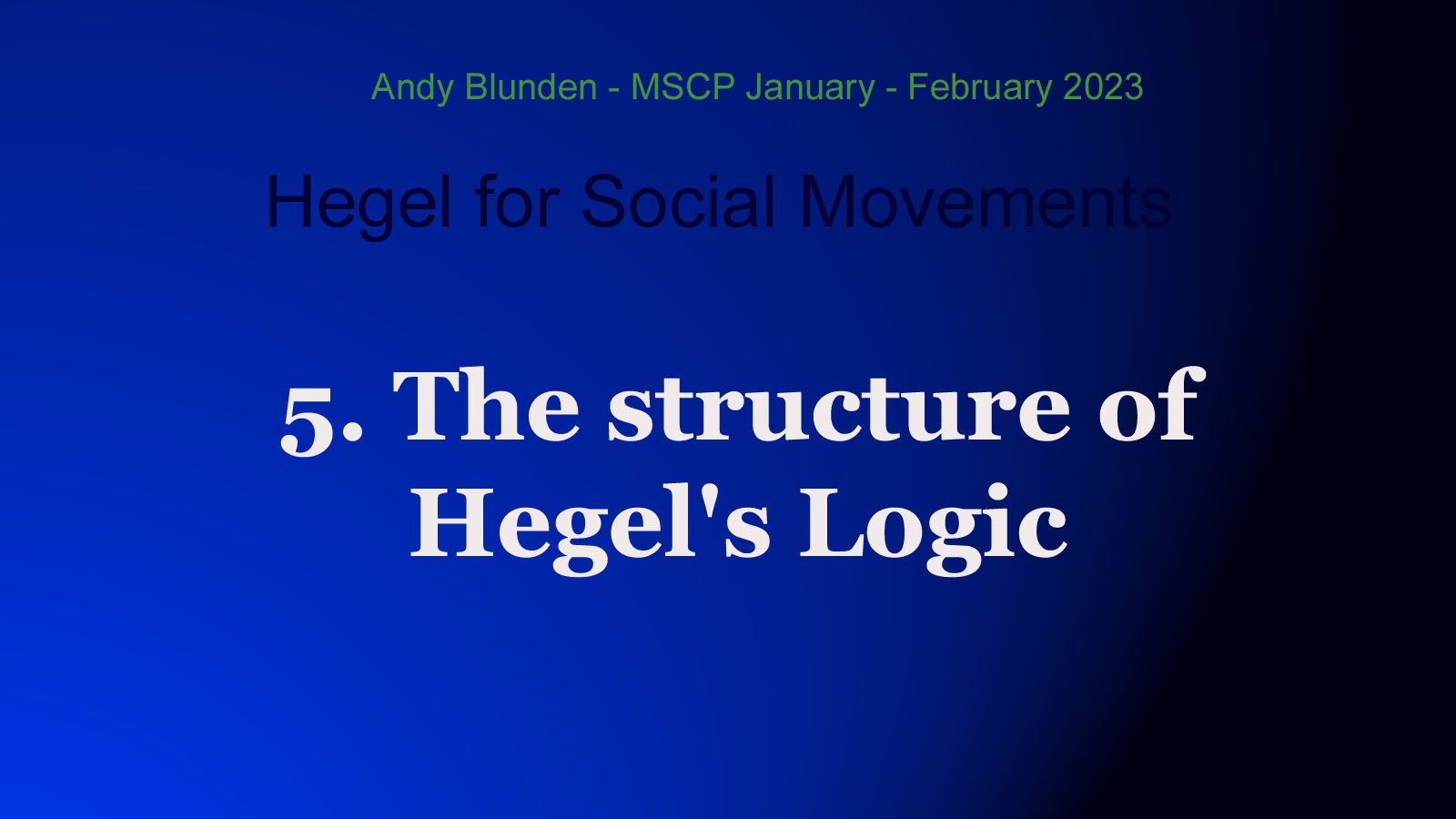 | 5. The structure of Hegel's Logic
Lecture 5 presents a synopsis of Hegel's Logic. |
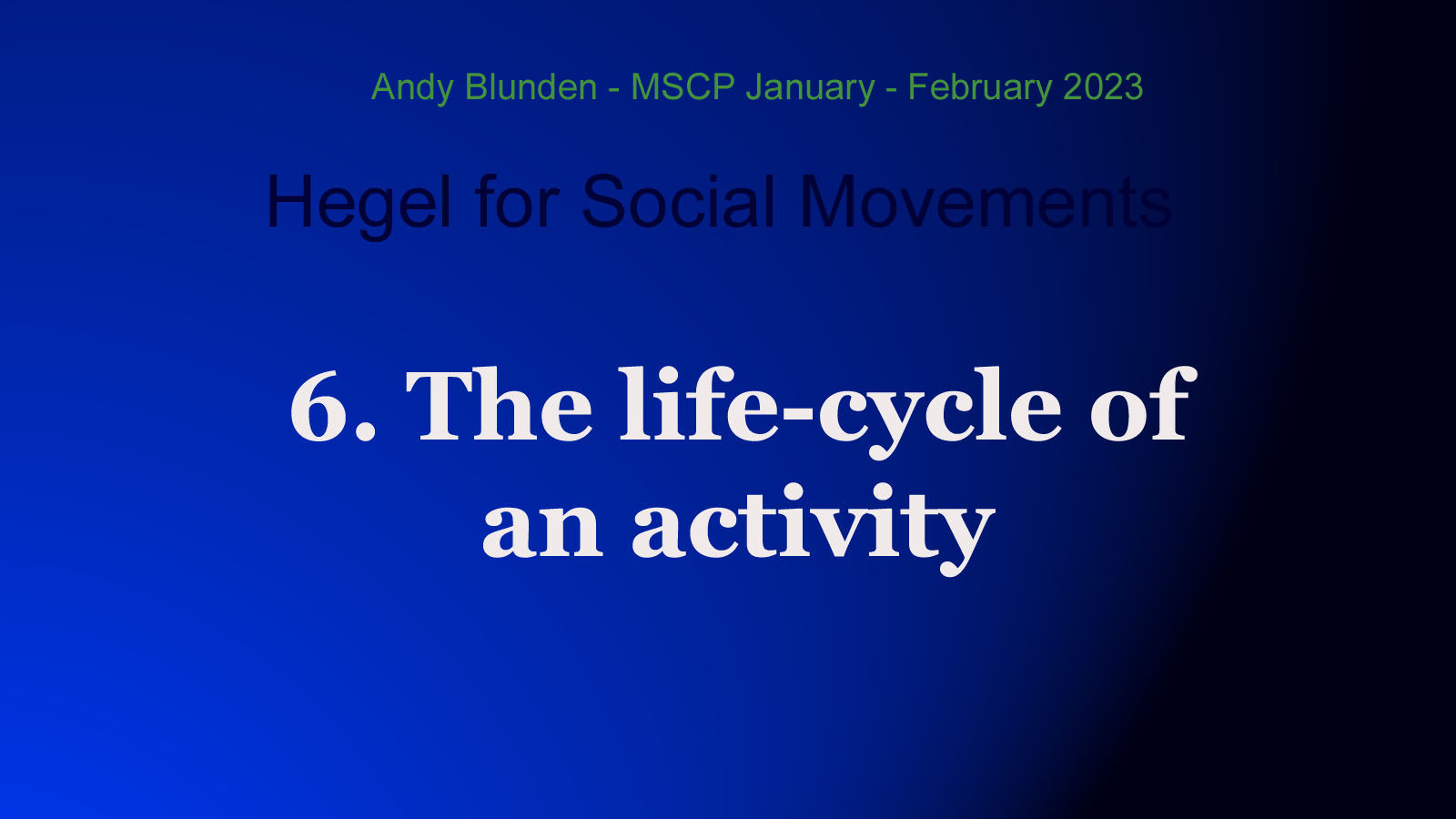 | 6. The life-cycle of an activity
Lecture 6 presents the life-cycle of an activity demonstrating the parallel with the structure of Hegel's Logic. |
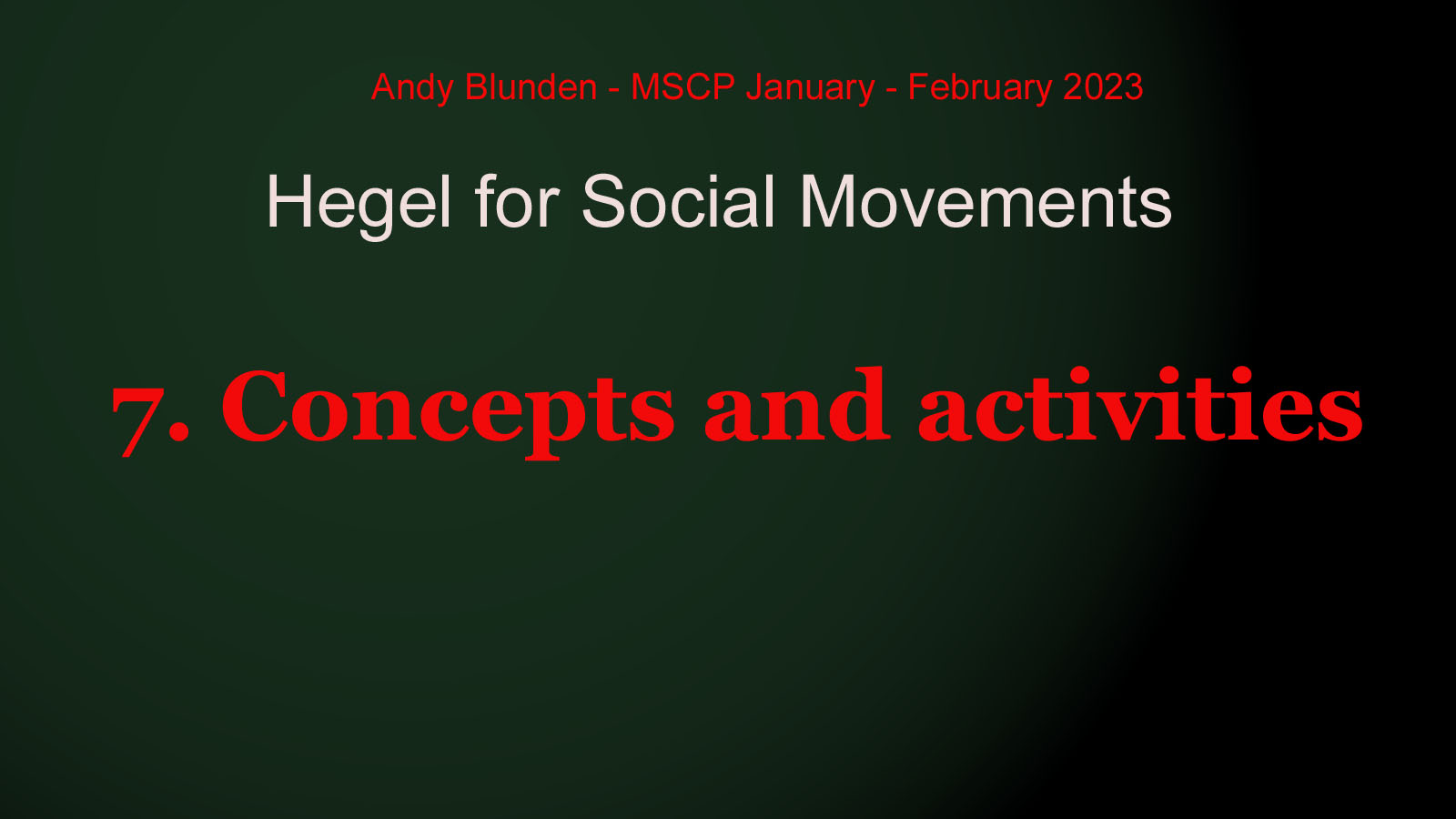 | 7. Concepts and activities
Lecture 7 of a series of 9 lectures takes this further by showing that a concept is an activity and vice versa. |
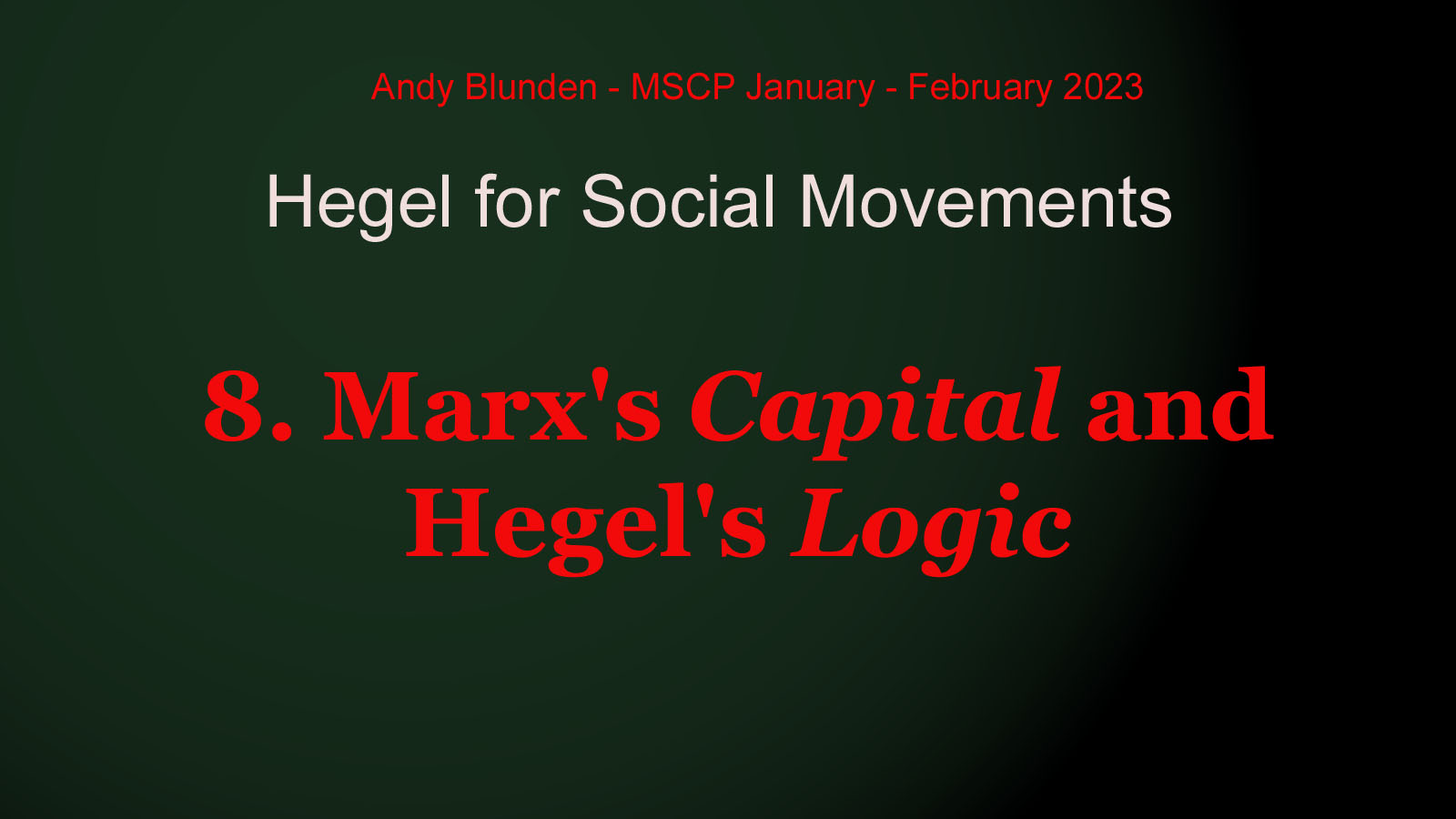 | 8. Marx's Capital and Hegel's Logic
Lecture 8 examines parallels between the Logic and Capital, both in the use of units to found the basic concepts in the overall triadic structure of the concept of capital |
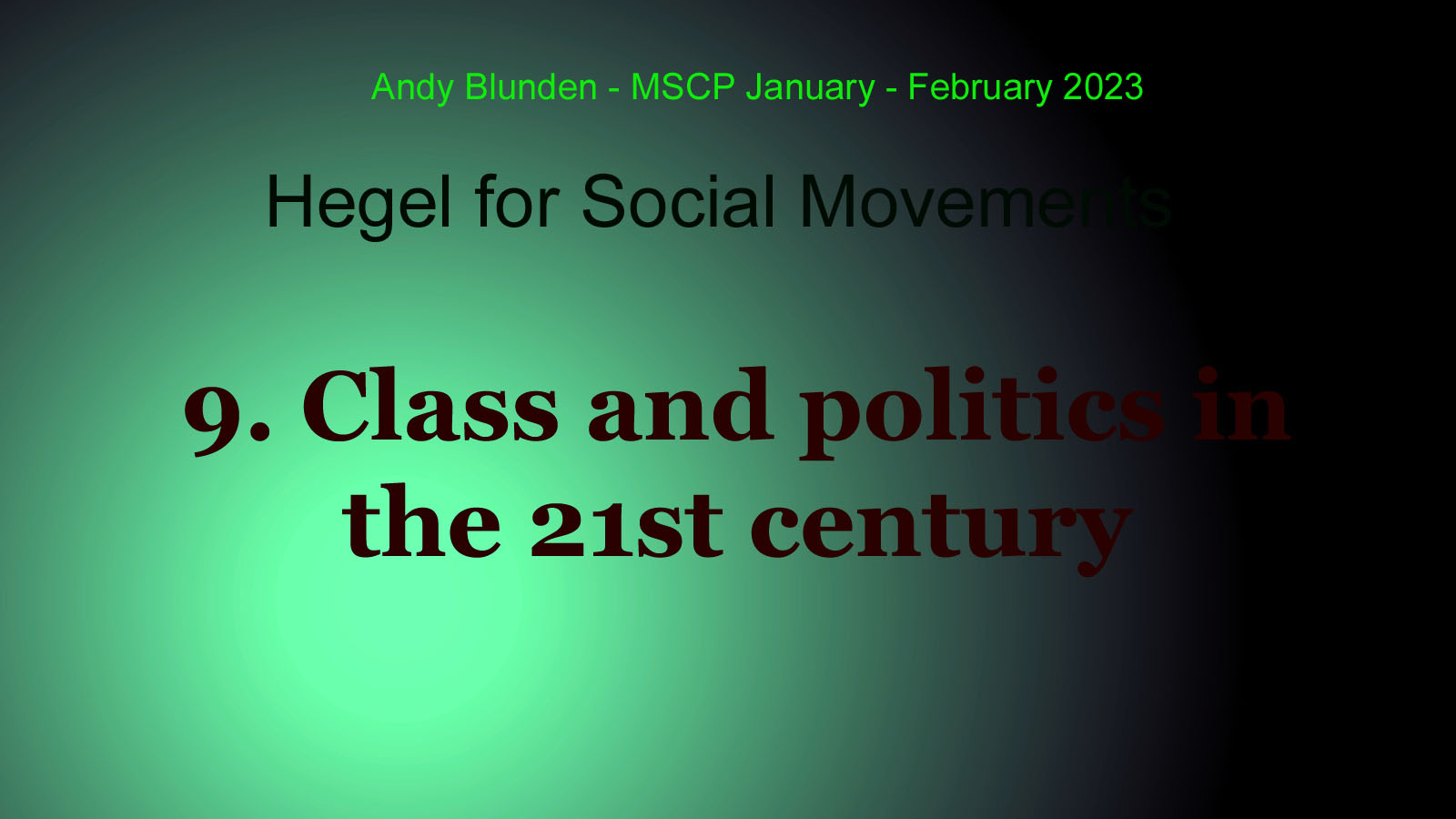 | 9. Class and politics in the 21st century
Lecture 9 moves to present-day politics and the class structure of modern Australia, and includes a full extra hour of discussion. |
|
This series of Powerpoint slides support these lectures, which were delivered in Melbourne University in 2015.
|
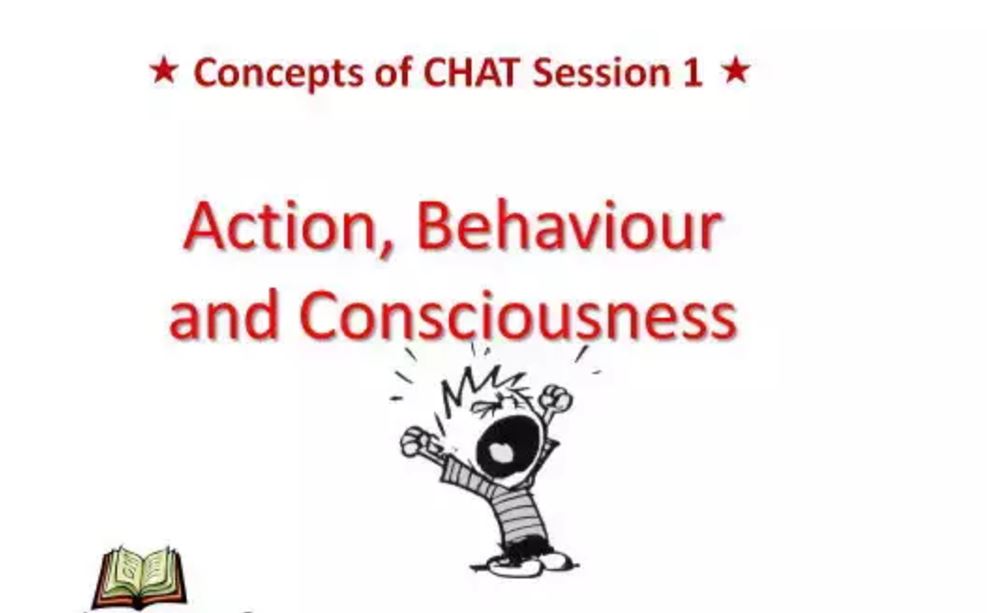 | 1. Action, Behaviour and Consciousness
Lecture 1 of a series of 10 lectures, presented in Melbourne in January-February 2015: Concepts of CHAT. This lecture covers very basic and introductory questions of the “philosophy of mind,” and the basic categories of Cultural Psychology and Activity Theory. |
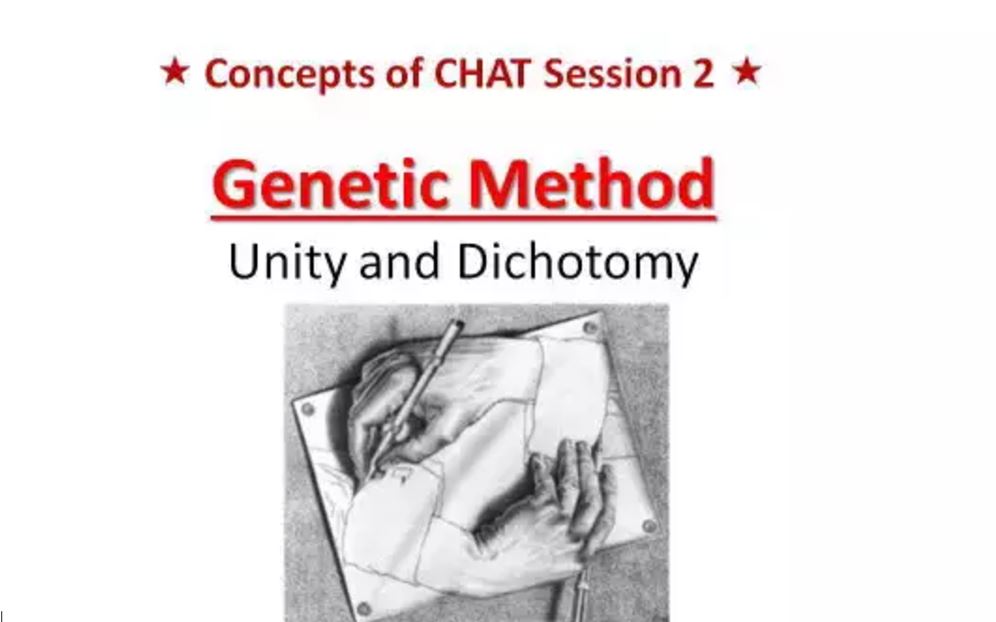 | 2. The Genetic Method: Unity and Dichotomy
Lecture 2 of a series of 10 lectures: Concepts of CHAT. This lecture deals with very basic questions of the methodology used by Vygotsky in his research and how Vygotsky overcame the problems of methodological dualism. |
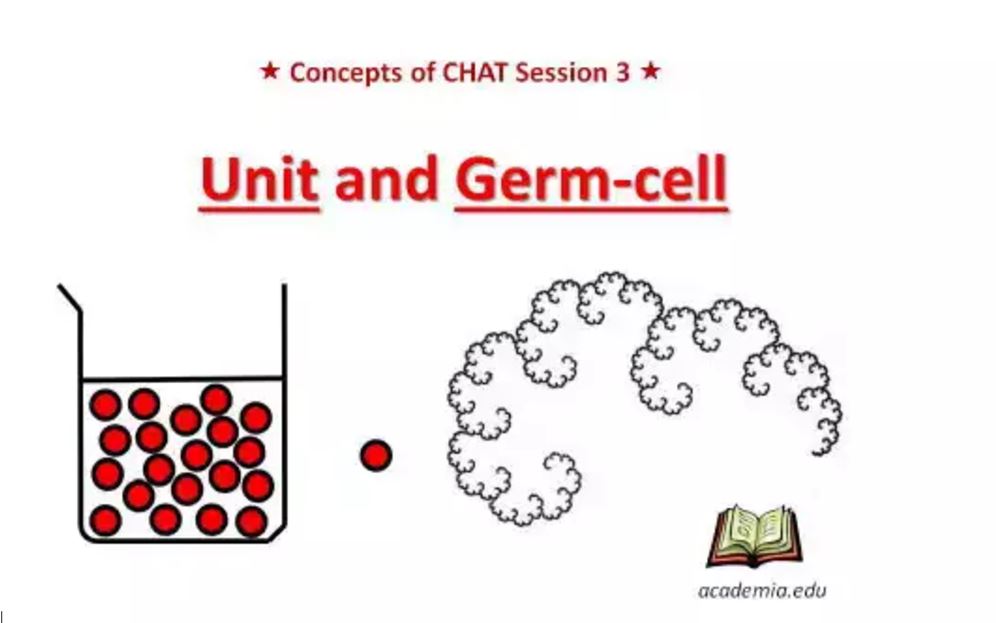 | 3. The Unit of Analysis and the the Germ Cell
Lecture 3 of a series of 10 lectures: Concepts of CHAT. This lecture deals with the key methodological concepts used by Vygotsky, following Marx, and which can be fruitfully applied to research in any of the sciences. |
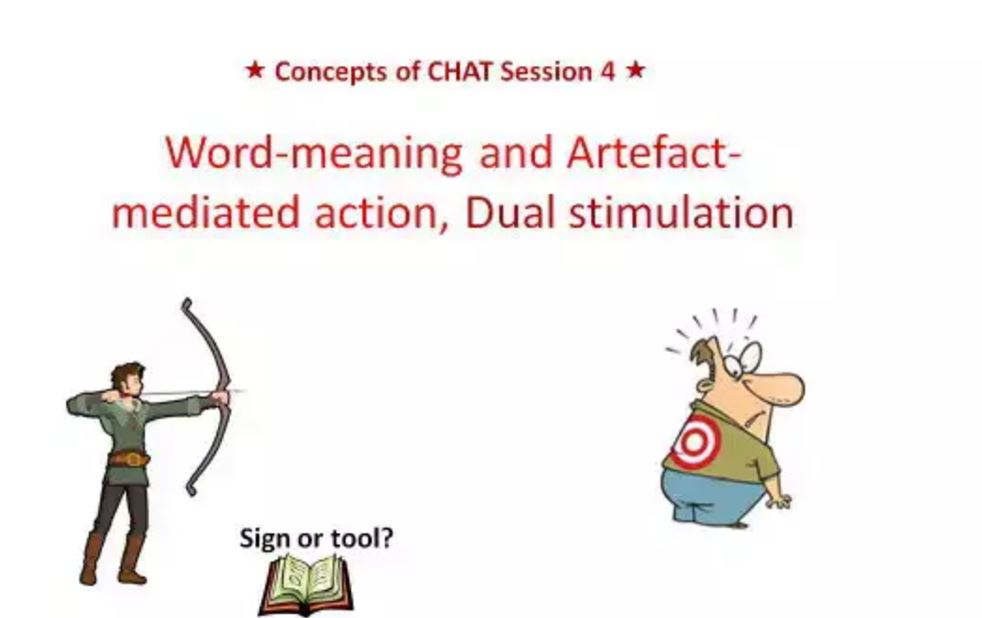 | 4. Word Meaning and artefact-mediation; Dual Stimulation
Lecture 4 of a series of 10 lectures: Concepts of CHAT. This lecture covers the concepts of artefact, symbol and tool, artefact mediated action, and the cultural formation of the mind. |
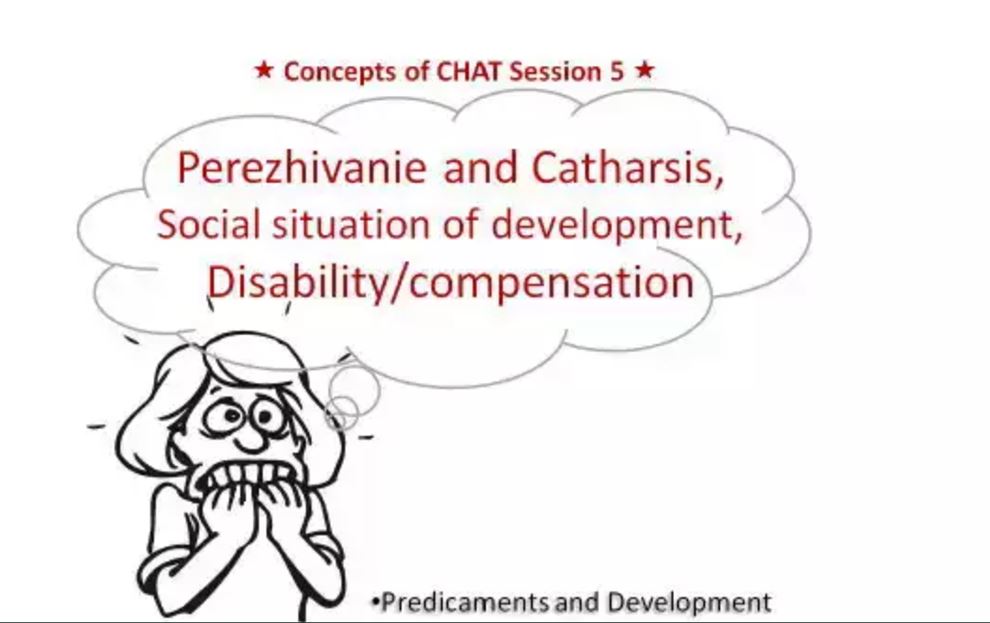 | 5. Perezhivanie & Catharsis; Social Situation of Development; Disability/Compensation
Lecture 5 of a series of 10 lectures: Concepts of CHAT. This lecture deals with some of the least-understood and most difficult concepts of Vygotsky's research in child development and the psychology of disability. |
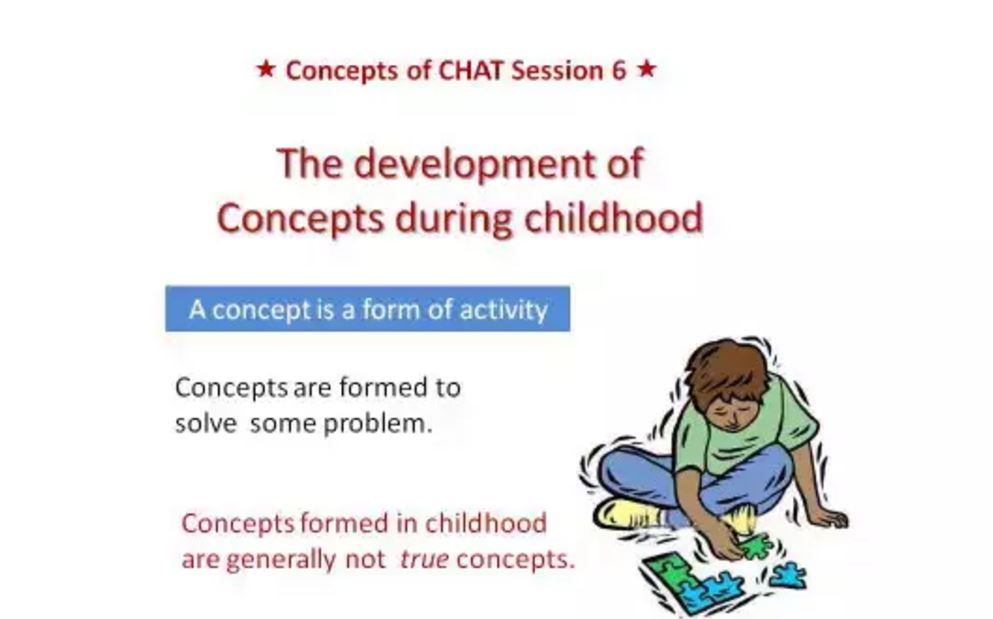 | 6. The Develeopment of Concepts during Childhood
Lecture 6 of a series of 10 lectures: Concepts of CHAT. This lecture outlines the various concepts introduced by Vygotsky in his study of "artificial" concepts, and the concepts arising in childhood, before young people are able to acquire true concepts. |
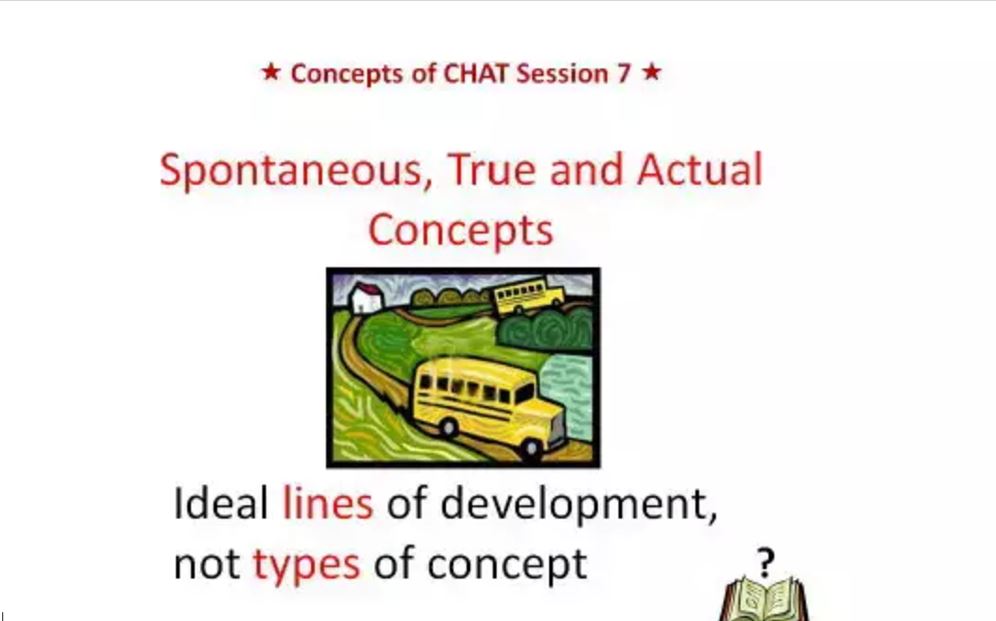 | 7. Spontaneous, True and Actual Concepts
Lecture 7 of a series of 10 lectures: Concepts of CHAT. This lecture completes Vygotsky's study of concept formation with his theory of concepts in adolescence and adult life. |
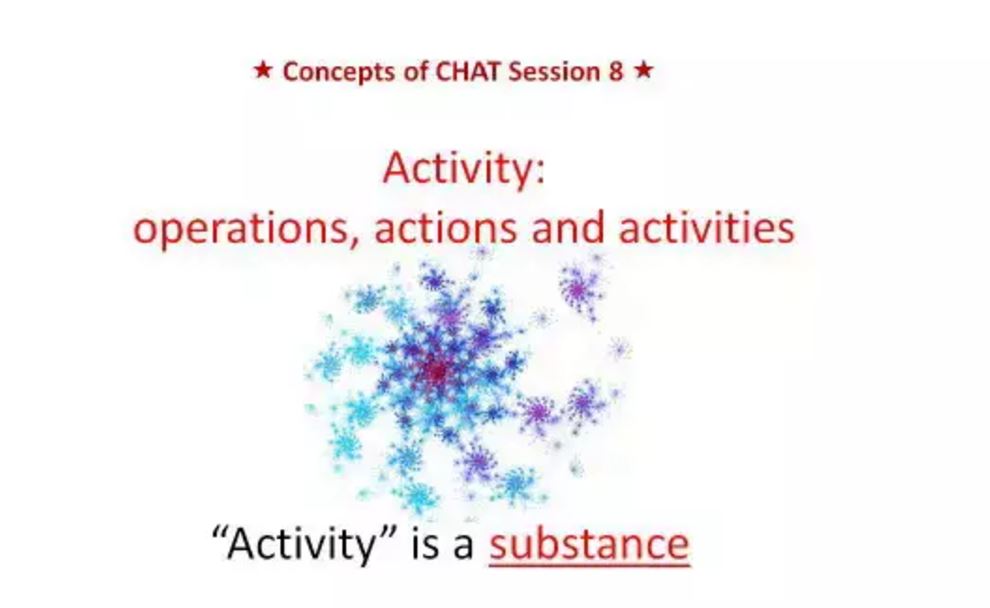 | 8. Activity: Operations, Actions and Activities
Lecture 8 of a series of 10 lectures: Concepts of CHAT. This lecture introduces the basic concepts of Activity Theory. |
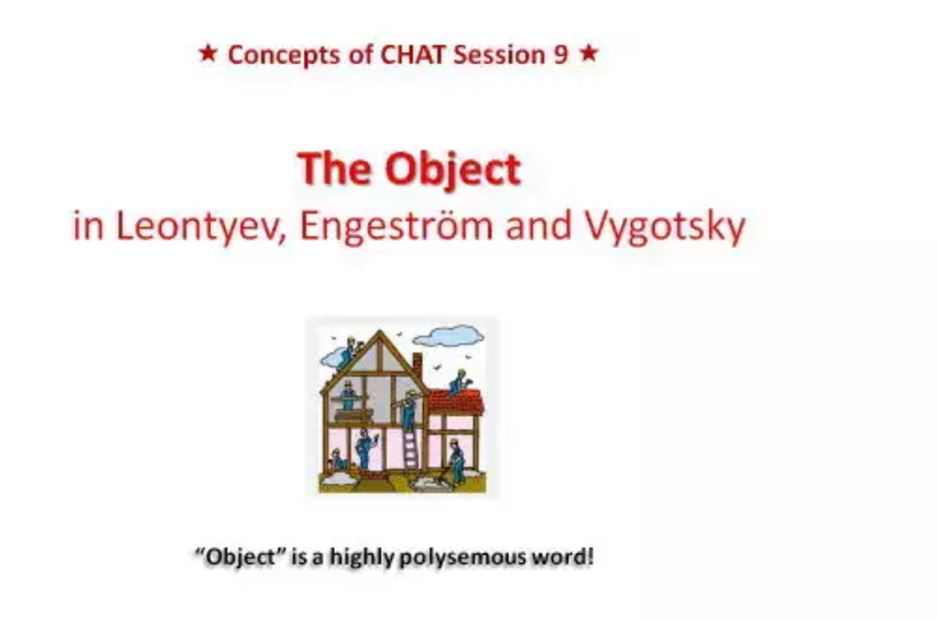 | 9. The Object in Leontyev, Engeström and Vygotsky
Lecture 9 of a series of 10 lectures: Concepts of CHAT. This lecture outlines the differences between three different strands of Activity Theory through a consideration of their concept of the Object of activity. |
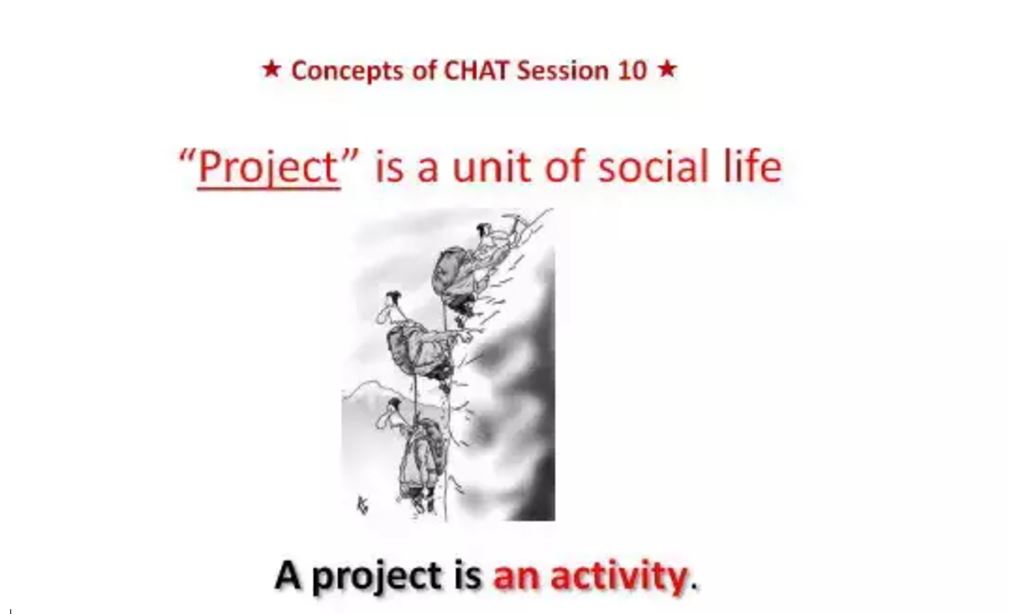 | 10. “Project” as a unit of social life
Lecture 10 of a series of 10 lectures: Concepts of CHAT. This lecture covers very basic and introductory questions of the “philosophy of mind,” and the basic categories of Cultural Psychology and Activity Theory. |
|
This course was delivered in 2013 at the University of Witwatersrand and Monash University in 2011. The texts are available here.
|
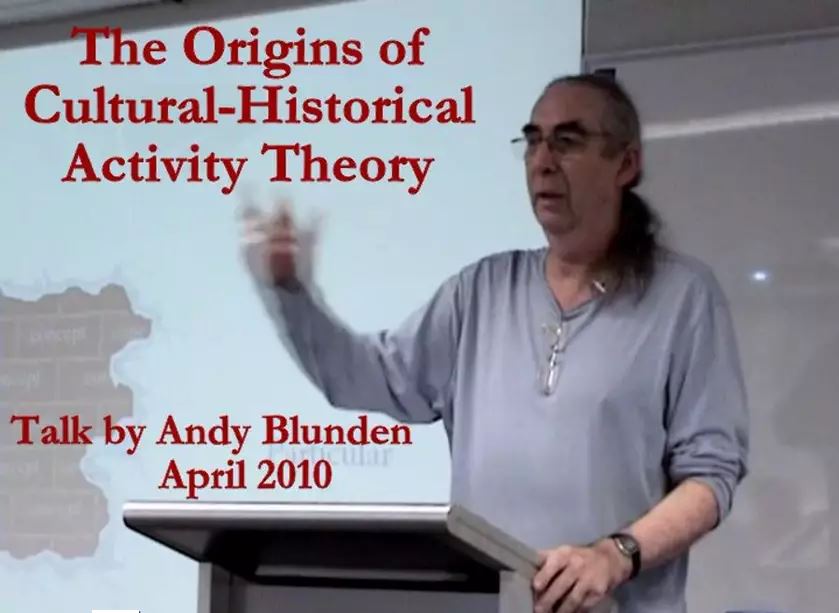 | 1. Origins of CHAT - German Philosophy
First of two talks given at the Monash Education Research Community, within the Department of Education at Monash University, by Andy Blunden on 20 April 2010.
The talk is the first of a two-part seminar for the International Course on Cultural Historical Activity Theory. It covers the contributions to this current of thought derived from Descartes, J G Herder, Goethe and Hegel. See German Philosophy for readings, the text of the two talks and for a diagram of the historical sources of CHAT more widely. |
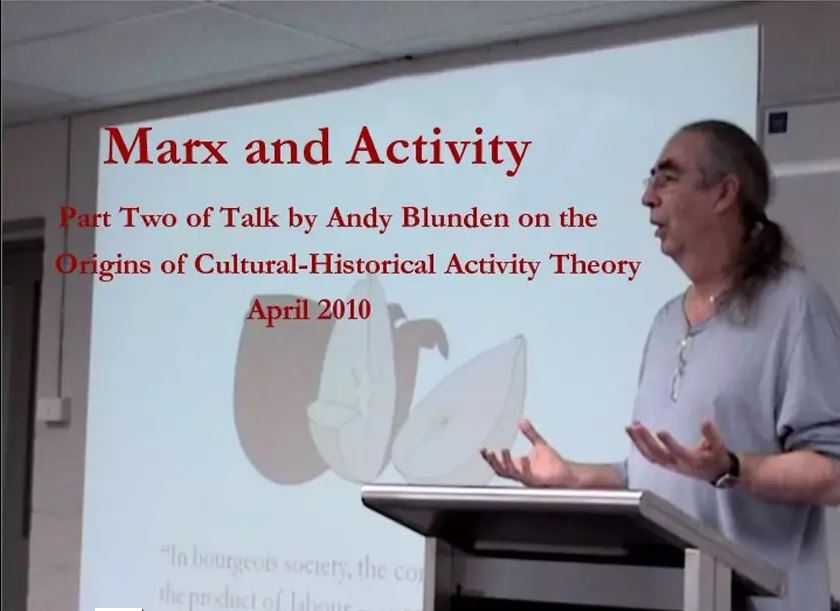 | 2. Origins of CHAT - Marx
The second lecture in the series, this talk looks at Marx’s critique of Hegel and his appropriation of the concept of “Activity,” and covers a number of other issues in various writings of Karl Marx, highlighting the particular contribution to Cultural Historical Activity Theory that is to be gained in each case. See the texts covered in this talk. |
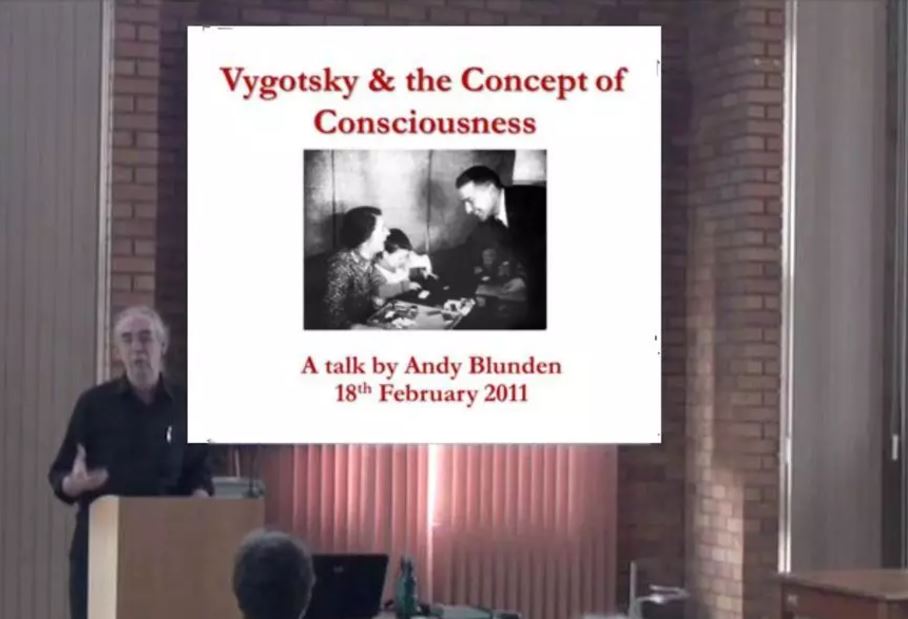 | 3. Vygotsky's idea of Consciousness
Third of 7 talks by Andy Blunden at the University of Witwatersrand. Presented on 18 February 2011. This talk deals with the fundamental ontological problems of psychology
See full text of this talk and video of discussion afterwards. |
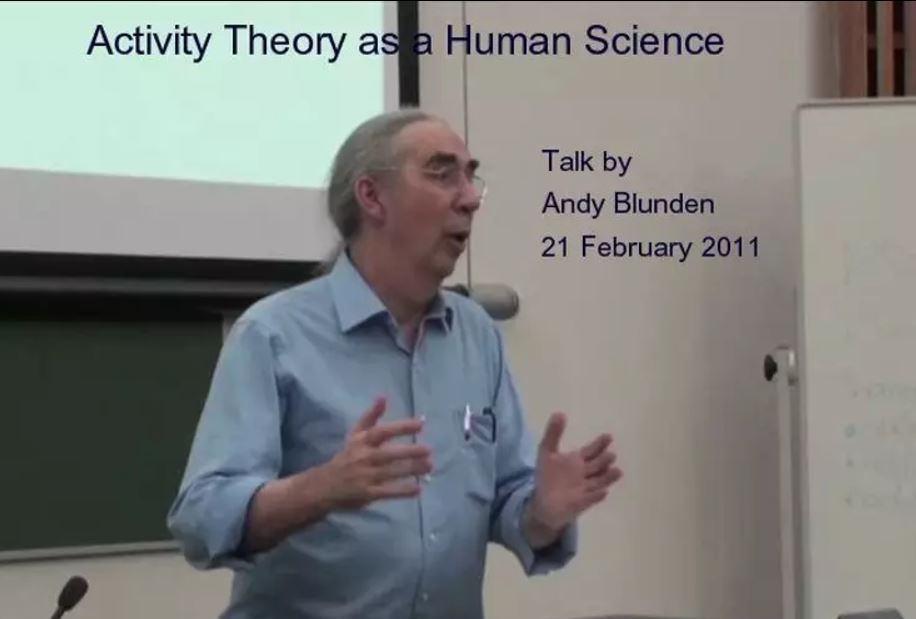 | 4. Activity Theory as a Human Science
Fourth of 7 talks by Andy Blunden at the University of Witwatersrand. Presented on 21 February 2011. This talk places Vygotsky's ideas and Activity Theory in the wider context of the human sciences.
See full text of this talk and video of and the discussion afterwards. |
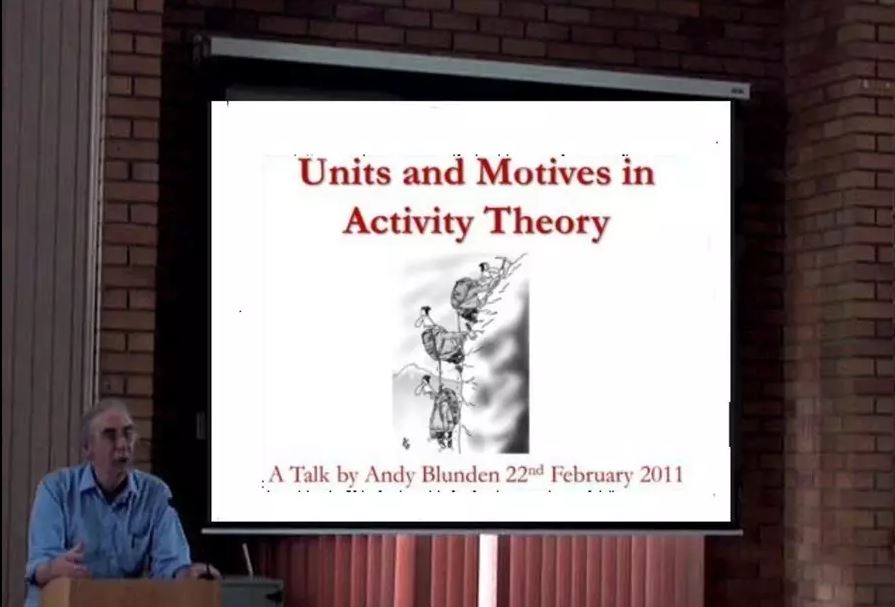 | 5. Units and Motives in Activity Theory
Fifth of 7 talks by Andy Blunden at the University of Witwatersrand. Presented on 22 February 2011. The talk looks at the three-level structure of activity and how these relate to the motives and goals of activity.
See full text of this talk. |
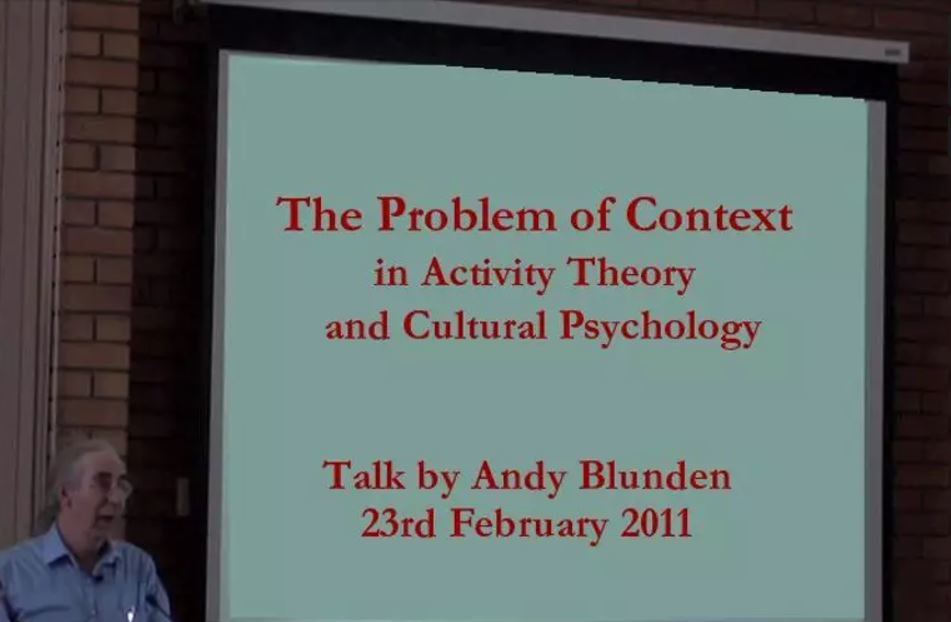 | 6. The Problem of Context in Activity Theory and Cultural Psychology
Sixth of 7 talks by Andy Blunden at the University of Witwatersrand. Presented on 23 February 2011. The talk looks at the central place of context in Cultural Psychology and compares this with a number of alternative approaches.
|
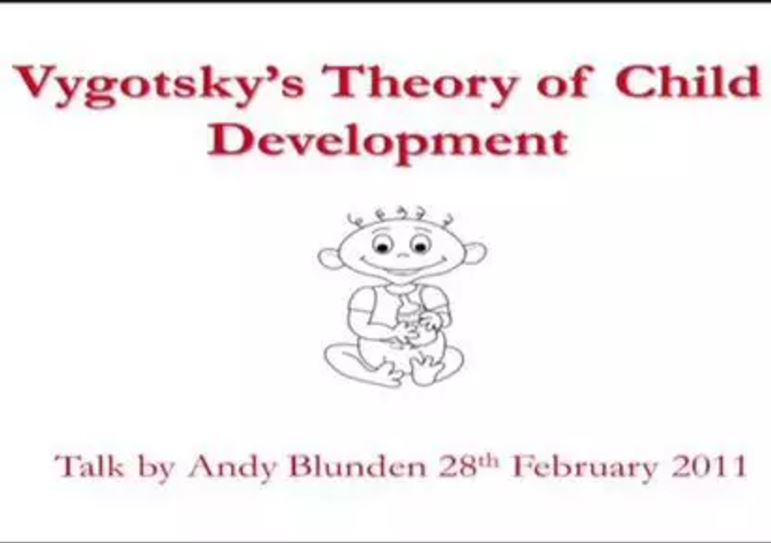 | 7. Vygotsky's Theory of Child Development
Seventh of 7 talks by Andy Blunden at the University of Witwatersrand. Presented on 25 February 2011. The various stages through which a child passes en route to adulthood are outlined and the theoretical issues which arise in using this theory
See full text of this talk and video of discussion afterwards. |
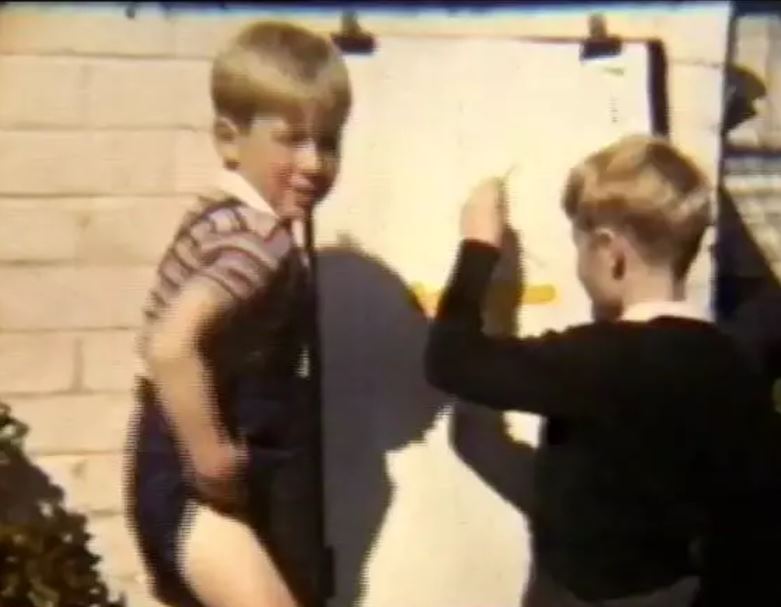 | Men at Work
Home movie shot in 8mm by Betty and Ralph Blunden, in the winter of 1950, showing their children, Andy and Pete, at play in the backyard of their Balwyn Road home in suburban Melbourne. Also featured are Donny the marmalade cat, the fish pond and tadpole pool, climbing bars, tree, paints and books, the Hills Hoist and the 1950 model Holden-sports. The music is by Percy Grainger. |
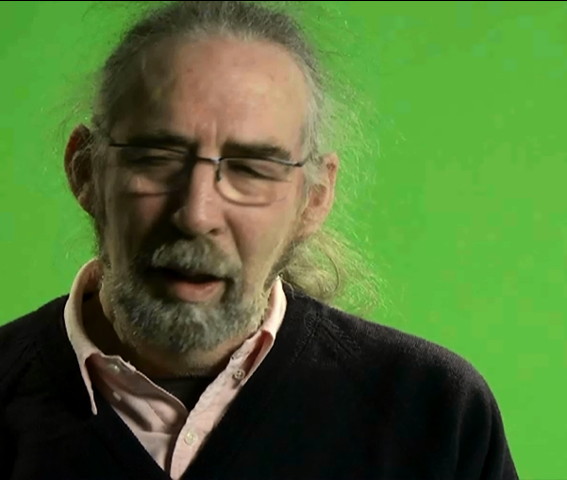 | Hell No!
Interview about my involvement in the Anti-Conscription movement in 1966, from a collection at the Australian War Museum. |
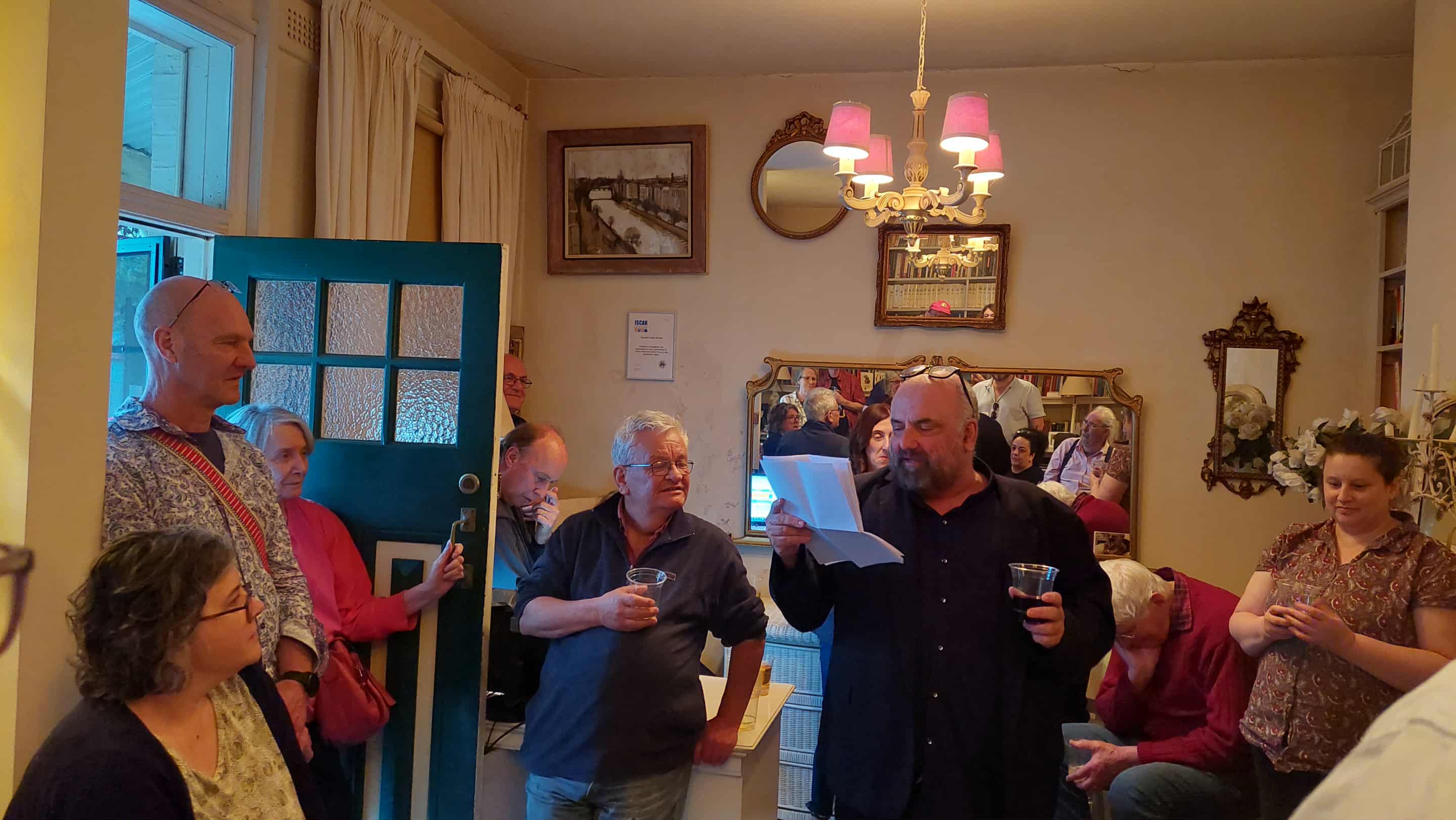 | Andy's 80th Birthday
Speech by Guy Rundle marking Andy's birthday on 11 October 2025. |
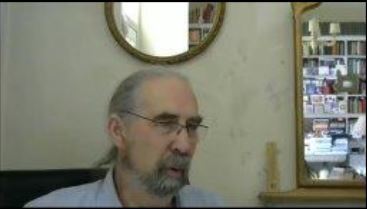 | Interview for MCA
Interview with Julian Williams, recorded in January 2018 for 'Mind, Culture and Activity' website. |
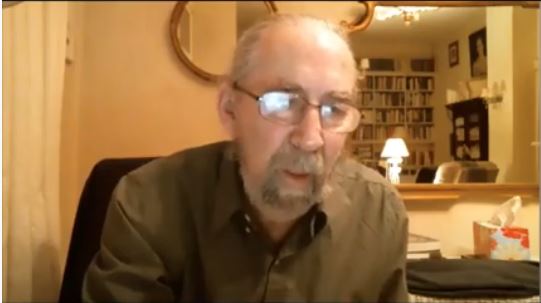 | Straddling the Abstract and Concrete
Two-hour long interview with Andy by Anthony Barra made in August 2020. |


























